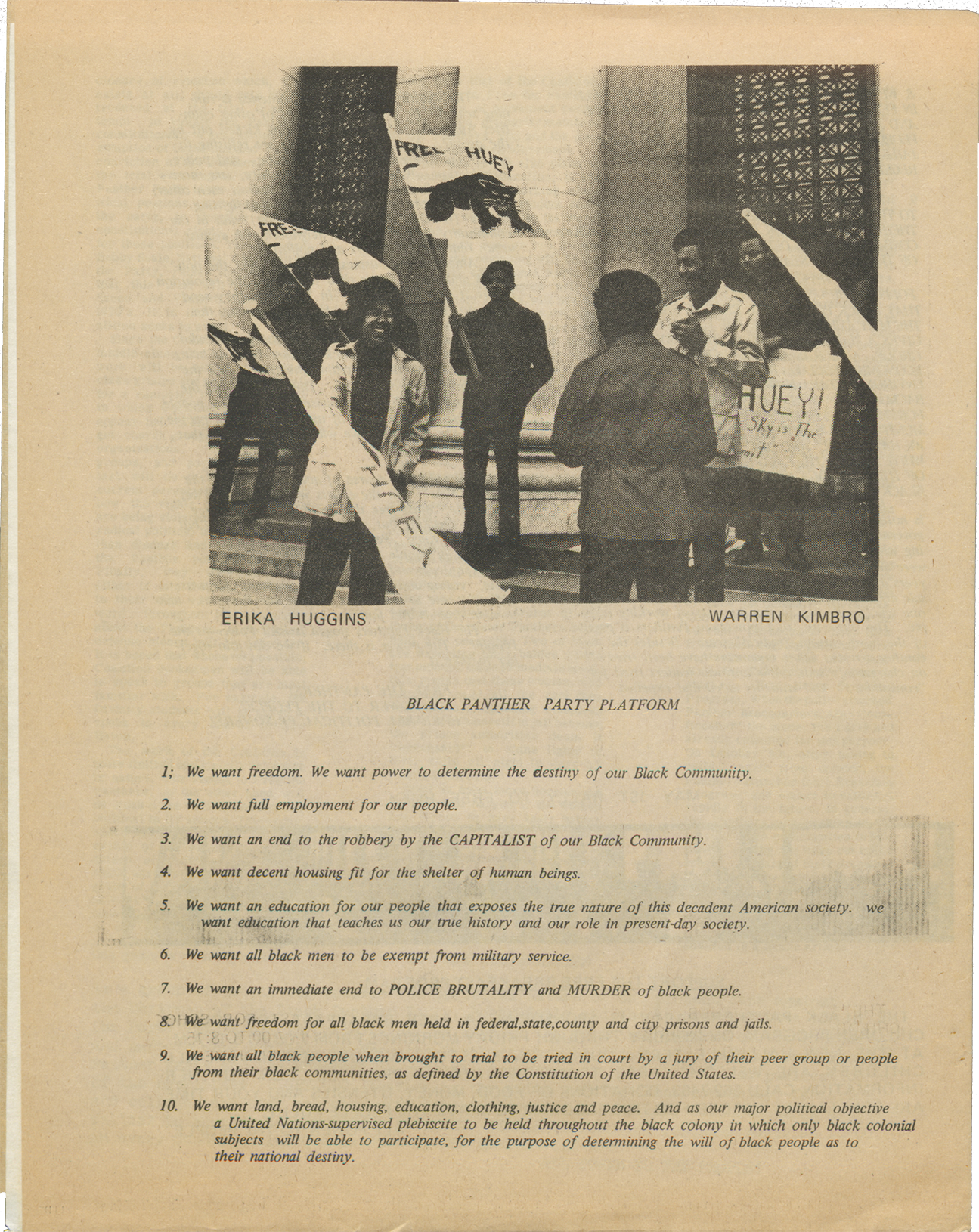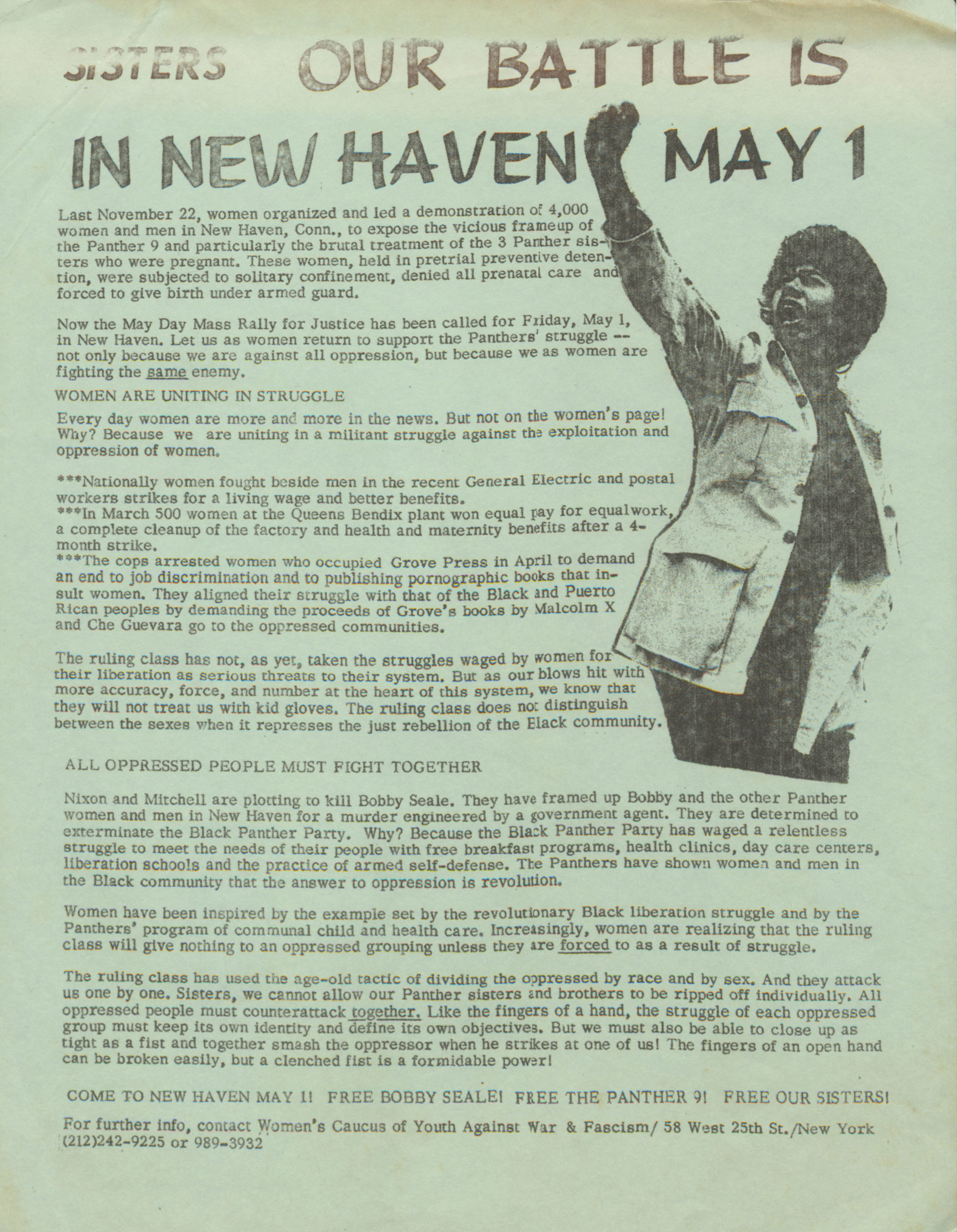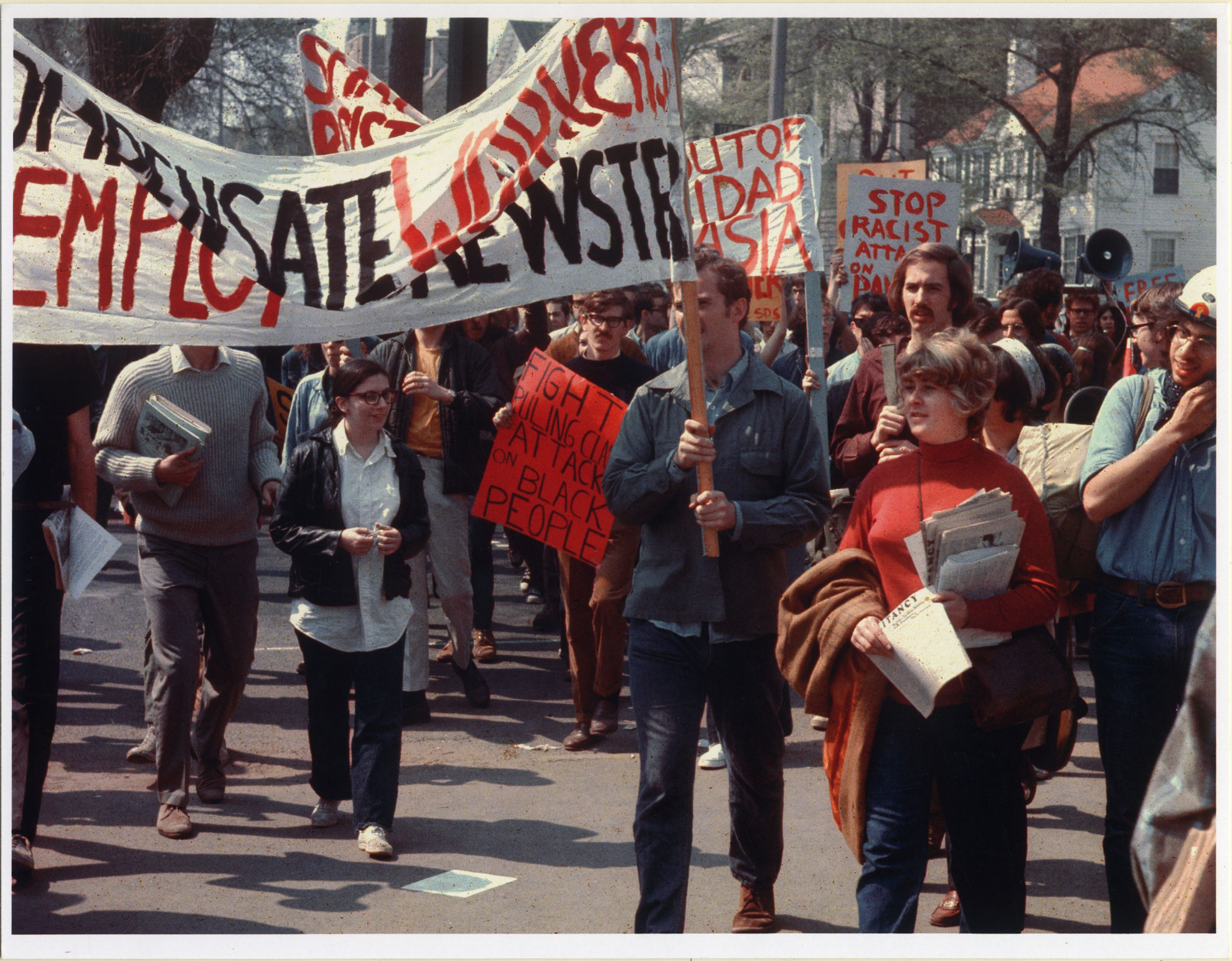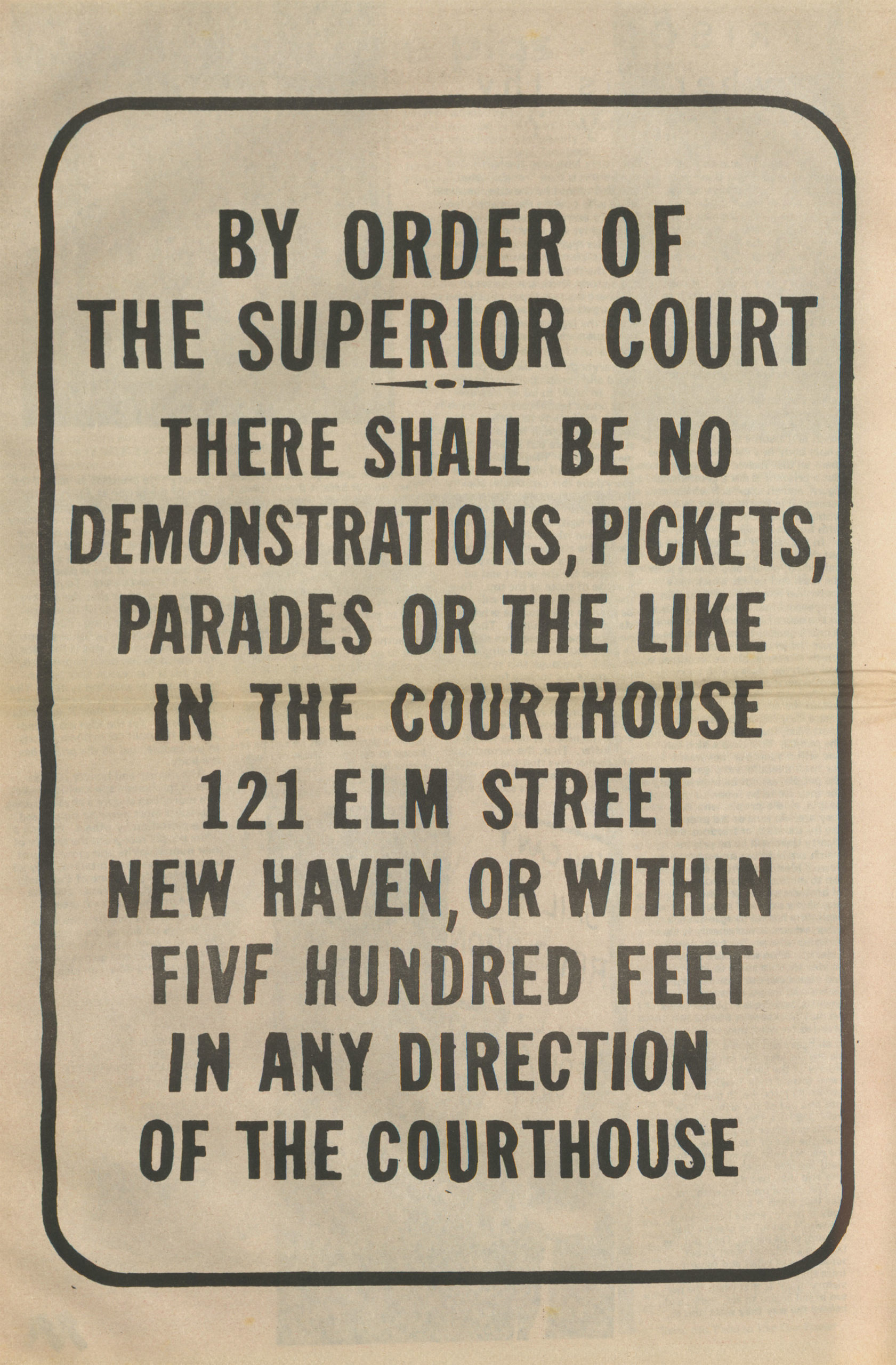Allison Norrie
Fairfield Public Schools
TEACHER'S SNAPSHOT
Subjects:
African Americans, Civic Engagement, Civil Rights, First Amendment, Law, Race, Social Movements
Course Topics/Big Ideas:
Cultural Diversity and an American National Identity, Role of Connecticut in U.S. History, The Struggle for Freedom, Equality, and Social Justice
Town:
New Haven
Grade:
High School
Lesson Plan Notes
In the spring of 1969, the body of Black Panther Alex Rackley was found in Middlefield, Connecticut. Nine members of the Black Panther Party were indicted by the New Haven Superior Court for murder. Chief among them was chairman of the party and recent defendant in the “Chicago Seven” trials, Bobby Seale. The trial of Seale began the following year and was accompanied by one of the largest political protests the city of New Haven had ever experienced. These became known nationally as the May Day Trials. The proceedings and protests drew national and international coverage, showcasing the political tension between social justice groups such as the Black Panthers and the federal government.
ESSENTIAL QUESTION
SUPPORTING QUESTIONS
- What role did the Black Panthers play in the civil rights movement of the 1960s?
- To what extent did race and racial identity factor into the events of the May Day Trials in New Haven?
- In what ways did the Black Panthers use media to bring awareness to their cause and attention to the May Day Trials?
ACTIVITY
- Start by establishing a basic understanding of the Constitutional right to assemble by reading and discussing the First Amendment. Teachers may want to consult the “The Development and Application of the First Amendment” packet from the College Board’s U.S. Constitution Series, created in partnership with the National Constitution Center or the National Constitution Center’s other First Amendment online learning materials. Upfront: “First Amendment 101” and this First Amendment infographic are good resources for helping students build an understanding of the First Amendment.
- Students will break out into small groups and analyze the source material from the toolkit using an ESPE (Economic, Social, Political, Environmental) Graphic Organizer or other graphic organizer of your choice.
- Student groups will then use their organizers to discuss the supporting questions and develop an answer to the compelling question: “How is the First Amendment used to advocate for justice in America?”
OPPORTUNITIES FOR ASSESSMENT
- Students can research and interpret contemporary protests and subsequent media coverage and share/discuss their findings in small groups or as an entire class.
- As an individual or small group, students can create their own “press kit” for a movement that they feel strongly about (i.e. environmental justice, LGBTQ+ advocacy, etc.)
- Individually, students can identify their local congressperson in order to write and send a letter regarding an issue they feel passionate about.
- As an individual or small group, students can create a podcast like the one from Artspace (see below) or a documentary film using archival footage from the Associated Press Archive.
RESOURCE TOOL KIT

“Black Panther Party Platform.” May Day Rally and Yale Collection (RU 86). Manuscripts and Archives, Yale University Library.

“SISTERS: OUR BATTLE IS NEW HAVEN MAY 1.” May Day Rally and Yale Collection (RU 86). Manuscripts and Archives, Yale University Library.

“Northwest Corner of Temple and Elm Streets” Thomas Strong Photographs of New Haven May Day Rally (MS 2030). Manuscripts and Archives, Yale University Library.

“BY ORDER OF THE SUPERIOR COURT,” a page of “May Day New Haven.” May Day Rally and Yale Collection (RU 86). Manuscripts and Archives, Yale University Library.
ADDITIONAL RESOURCES
Places to GO
Yale University’s Sterling Memorial and Beinecke Libraries, New Haven, CT. By appointment only.
Whitney Library at the New Haven Museum. By appointment only.
Things To DO
Listen to “Revolution on Trial” podcast. Mercy Quaye, 2020. Artspace, New Haven.
Listen to “Revisiting New Haven’s Black Panther Trials With Ericka Huggins.” Lucy Nalpathanchil and Carmen Baskauf. May 15, 2020. Connecticut Public Radio.
Websites to VISIT
“Free the New Haven Panthers”: The New Haven Nine, Yale, and the May Day 1970 Protests That Brought Them Together. Online exhibition, curated by Kathryn Schmechel ’21 for the Senior Exhibit Project at Yale University Library, 2021.
Articles to READ
ConnecticutHistory.org:
“‘Free Bobby, Free Ericka’: The New Haven Black Panther Trials” by Tasha Caswell
“The Black Panther Party in Connecticut: Community Survival Programs” by Steve Thornton
“The Rise of the Black Panther Party in Connecticut” by Steve Thornton



